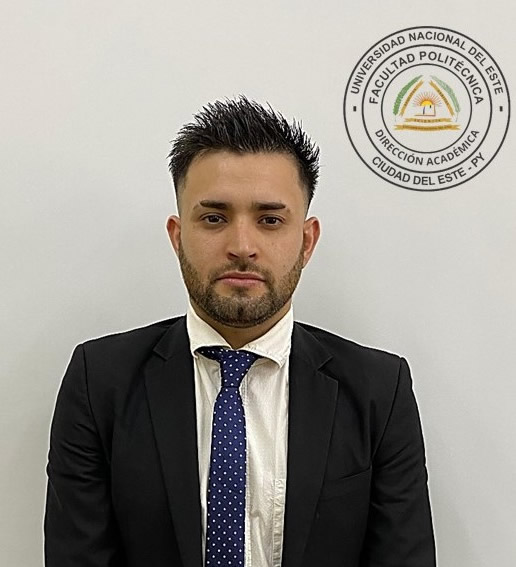Ingeniería de Sistemas

CURRICULUM PLAN 2025
Duration: 5 years
Modality: Undergraduate Course
Degree awarded: Systems Engineer
Academic Unit: Faculty of Engineering
MISSION OF THE CAREER
To train innovative, ethical professionals committed to the country’s sustainable development, with expertise in Information and Communication Technologies (ICT) or Embedded Systems, capable of managing technological solutions in various sectors, promoting research, outreach, and teaching.
VISION OF THE CAREER
To train leading professionals capable of offering technological solutions that address contemporary challenges and promote scientific and technological progress in multiple sectors, with a solid foundation in Information and Communication Technologies (ICT) or Embedded Systems.
GENERAL OBJECTIVE
- To train professionals in Systems Engineering with competencies in Information and Communication Technologies (ICT) or Embedded Systems, capable of researching, evaluating, analyzing, planning, designing, directing, managing, implementing, and advising projects; developing innovative and sustainable solutions, with an ethical and collaborative approach, to face technological and social challenges that contribute to social and environmental development.
SPECIFIC OBJECTIVES
- Develop technical skills in the design, implementation, and management of solutions based on Information and Communication Technologies (ICT) or Embedded Systems, to address complex problems in various sectors.
- Promote applied research in key areas of Systems Engineering, fostering the generation of knowledge and the development of technologies that contribute to innovation, sustainable development, efficient use of resources, and environmental preservation.
- Boost critical and ethical capacities in technological decision-making, ensuring that future professionals apply ethical principles and social responsibility in the design and execution of technological projects.
- Encourage continuous learning and adaptation to new technologies, preparing students to remain up-to-date in a constantly evolving technological environment.
GRADUATE PROFILE
The graduate in Systems Engineering from the Polytechnic Faculty of the Universidad Nacional del Este (FPUNE) is a university professional qualified to evaluate, analyze, plan, design, direct, manage, implement, and advise on innovative technological solutions in ICT or Embedded Systems, with an ethical and sustainable approach. They will have skills in solving complex problems, project leadership, and interdisciplinary collaboration. Additionally, they will be prepared for research, innovation, and teaching, adapting to technological advances and contributing to social and environmental development.
OCCUPATIONAL FIELD
Graduates of the program can work in various sectors, including technology companies, telecommunications, manufacturing, energy, healthcare, and government, among others. They also have opportunities in teaching and research, and can hold leadership positions. Some of the roles that a systems engineer can develop include:
- Development and implementation of Embedded Systems solutions: Design and development of Embedded Systems for applications in various sectors.
- Administration and management of ICT networks and systems: Implementation and maintenance of communication networks, data centers, and computer systems in companies and organizations.
- Software engineering and application development: Creation of applications and platforms that integrate with embedded devices, applying IoT principles in related projects, improving communication and information processing in digital environments.
- Cybersecurity and data protection: Development of strategies and systems to protect networks and embedded devices from security threats.
- Technology consulting: Advising companies on the adoption of Information and Communication Technologies (ICT) or Embedded Systems to optimize processes and improve efficiency.
- Research and development: Participating in applied research projects in emerging technologies, developing new solutions in the field of ICT or Embedded Systems.
- Teaching and technology training: Training future professionals in areas related to ICT or Embedded Systems, contributing to the development of talent in these areas.
- Data analysis: Processing and analyzing large volumes of data to extract relevant information and support decision-making.
- Technological project management: Coordinating teams to develop technological projects that generate value and efficiency.
COMPETENCIES
GENERIC
The Systems Engineering student will be able to:
- C.G. 1. Have skills in logical, mathematical, and physical reasoning.
- C.G. 2. Research from various sources and act autonomously, learning independently.
- C.G. 3. Abstract, analyze, synthesize information, and apply the knowledge acquired in practice.
- C.G. 4. Communicate clearly, coherently, and persuasively, both orally and in writing.
- C.G. 5. Work effectively in multidisciplinary teams, respecting inclusivity and multicultural diversity.
- C.G. 6. Identify, analyze, abstract, formulate, and solve problems related to their field of knowledge.
- C.G. 7. Have logical, critical, self-critical, divergent, and proactive thinking.
- C.G. 8. Lead and manage technological projects with a focus on innovation, efficient use of resources, and environmental sustainability.
- C.G. 9. Commit to ethics, socio-professional responsibility, and quality management in pursuit of improving quality of life.
- C.G. 10. Design, formulate, plan, implement, manage, and evaluate IT projects and services.
- C.G. 11. Act according to the principles of prevention, hygiene, and occupational safety.
- C.G. 12. Design, program, execute, analyze, and interpret test results in their area of knowledge.
- C.G. 13. Lead and negotiate requirements and solutions, demonstrating resilience in the face of setbacks.
- C.G. 14. Develop a strategic vision for planning, execution, supervision, coordination, and evaluation of projects, aligned with organizational objectives in multicultural, local, or globalized environments.
- C.G. 15. Use appropriate techniques and tools in Systems Engineering practice.
- C.G. 16. Foresee the behavior of a design or the results of a proposed solution to evaluate the costs and benefits of the activities involved.
- C.G. 17. Plan and manage time and task organization.
- C.G. 18. Implement security policies to protect information and ensure the continuity of IT systems.
SPECIFIC
The Systems Engineering student will be able to:
- C.E. 1. Apply mathematical, physical, calculus, and statistical knowledge to analyze and solve problems that enable decision-making.
- C.E. 2. Understand and apply the basic concepts of discrete mathematics, logic, algorithms, and computational complexity for problem-solving.
- C.E. 3. Integrate theoretical and practical knowledge of physics, electricity, and electronics.
- C.E. 4. Solve problems in their fields of knowledge oriented toward computer science.
- C.E. 5. Communicate in Spanish or English in professional contexts.
- C.E. 6. Measure and evaluate alternatives for IT solutions.
- C.E. 7. Know and apply the legal regulatory framework inherent to their field of knowledge.
- C.E. 8. Develop technical competencies in the design, implementation, and management of solutions based on ICT or Embedded Systems.
- C.E. 9. Identify risks and conduct assessments of systems and computer environments, identifying and applying IT security and control standards for compliance.
- C.E. 10. Manage projects, resources, and organizational processes, applying ethical, legal, financial, social, and environmental principles.
- C.E. 11. Analyze the economic environment in which companies operate, understanding the supply and demand for technological solutions.
- C.E. 12. Independently learn new knowledge and techniques suitable for the design, development, and application of IT systems.
- C.E. 13. Develop and analyze software, integrating programming language knowledge and applying software engineering methodologies.
- C.E. 14. Understand the fundamental components of a computer and how they interact with software and hardware.
- C.E. 15. Identify solutions based on current and emerging computing paradigms (Grid Computing, Cloud Computing, etc.).
- C.E. 16. Develop applications using modern programming languages, applying software engineering principles.
- C.E. 17. Conceive, design, plan, and program systems, components, or IT processes to make decisions that address economic, financial, legal, ethical, social, and environmental aspects, among others.
ADMISSION REQUIREMENT
The Polytechnic Faculty of the Universidad Nacional del Este for the Systems Engineering degree program establishes a leveling course and an admission exam, open to the general public interested in being part of the program, provided they meet all the requirements established in the Internal Regulations - Art. 48 and in the Admission Process Project.
GRADUATION REQUIREMENT
The Systems Engineering program at the Polytechnic Faculty of the Universidad Nacional del Este requires the following for graduation:
- Pass all the subjects in the Study Plan (including the emphases).
- Have completed the total number of hours planned for the entire program (4,386 hours), including those corresponding to University Extension activities (50 hours) and the Supervised Professional Internship (240 hours).
- Present and defend a final paper, which must be approved by an examining board set up for this purpose, once all previous requirements have been met.
COORDINATION TEAM OF SYSTEMS ENGINEERING
Ing. Mirta Arrúa de León
Coordinadora de la Carrera de Ingeniería de Sistemas
ing.de.sistemas@fpune.edu.py
Int. 217
Cris Medina Cantero
Asistente de la Carrera de Ingeniería de Sistemas
ing.de.sistemas@fpune.edu.py
Int. 217
Prof. Derlis Villar Retamozo
Asistente Académico
Int. 238
Alexander Paredes Alderete
Asistente Académico
Int. 238




